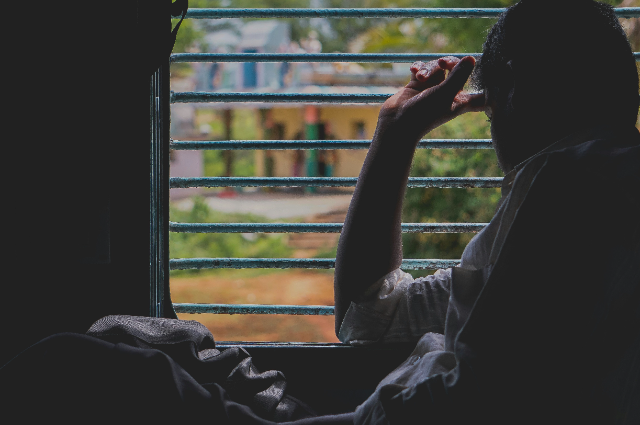
Photo by Vni Vinay on Unsplash
The train was packed, bodies pressed together in a quiet surrender to the evening rush. Hands gripped overhead bars, shoulders brushed against strangers, and the rhythmic clatter of metal on tracks filled the silence between them. Outside, Kolkata’s streets pulsed with life—hawkers calling out their last sales, buses honking impatiently, streetlights flickering to life against the dusk.
Near the door, a man in his late forties adjusted his worn-out satchel. His face carried the kind of fatigue that doesn’t just come from a long workday but from years of stretching every rupee, every meal, every hour. His clothes were neat but tired, much like the dreams he once had—ones that had quietly reshaped themselves into responsibilities.
Across from him stood a young woman in her twenties, fingers gripping her phone as she scrolled through job listings. She had spent years chasing qualifications, unpaid internships, and parental expectations, only to find herself here—trapped between ambition and reality. A notification popped up—a friend’s engagement. She swiped it away without a second glance, as if even acknowledging it would be a reminder of how far she still had to go.
In the farthest corner of the compartment, an elderly man sat with a stillness that contrasted the chaos around him. His crisp white kurta, carefully pressed, hinted at old habits—perhaps a discipline from a time when appearances mattered more than they do now. Every so often, he hummed an old tune under his breath. A habit, maybe, from the days when his wife would ask him to sing for her in the kitchen. She had been gone for three years now, but at dinner, he still found himself setting an extra plate, caught in the quiet muscle memory of love.
And then, in the middle of it all, a small boy clung to his mother’s sari. His tiny hands gripped the fabric as if it were the only thing anchoring him in this sea of moving bodies. His mother—her hair hastily tied; her eyes sharp with the weight of survival—balanced him on one hip while clutching a bag of vegetables in the other. She had bought them at a discount from a vendor who, like her, was counting every rupee.
Each of them carried something. Not just bags or phones, but burdens, regrets, hopes, and small joys tucked away in the quiet spaces of their lives. They had no reason to speak to one another, yet for a few stops, their stories ran parallel, their lives brushing against each other like fleeting shadows.
The train rumbled on, a metal beast ferrying these untold stories across the veins of the city.
And then, for a moment, something shifted.
The old man caught the boy’s curious gaze and smiled, a gentle nod of recognition from one life to another. The young woman glanced up from her screen, momentarily drawn to the quiet melody he was humming. The tired man by the door sighed and loosened his grip on his satchel, as if letting go of just a little bit of the weight he carried. The mother adjusted her son’s hand in hers, a silent reassurance that, despite everything, she had him.
No words were exchanged. No grand gestures were made.
Yet, in that fleeting instant, they were no longer just strangers crushed into the same space. They were human.
And as the train lurched forward, doors sliding open at the next stop, each of them stepped out into the world once more—carrying their burdens, their dreams, and, perhaps, a little more understanding of the unseen lives moving alongside their own.
